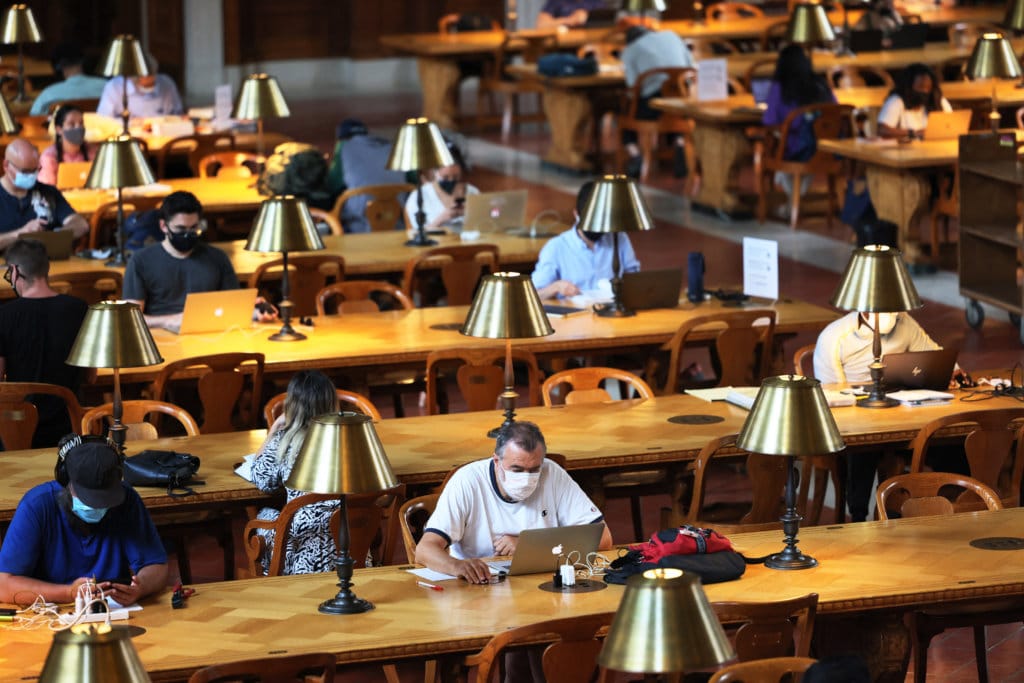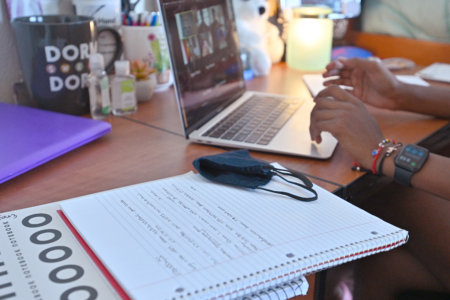
Ah, what’s multitasking but our valiant attempts to balance more than one task at a time in hopes of being more productive and efficient in getting things done?
What’s multitasking like in our daily life? For students, this may look something like organising your day ahead while you’re in a lecture, reading up on your notes while you’re on the bus, or sneaking a text between seminars.
It might seem like you’re getting more done in an hour than you might otherwise. On paper, this sounds like a great thing. In practice, however, multitasking isn’t as beneficial as society makes it seem.
In fact, it can cause more harm than good. This may seem contradictory, but it’s backed by research, too. Here’s what studies have to say about the dangers of multitasking.

What’s multitasking like in our daily life? One example is texting while crossing the road — a recipe for disaster. Source: Philip Fong/AFP
What’s multitasking and why is it dangerous?
Researchers at Stanford University found that any one person’s productivity levels are much lower when they’re multitasking than when they’re performing a single task at a time.
On top of this, those who are regularly bombarded with notifications from their phones, laptops and other electronic devices are usually unable to pay attention, recall information, or switch from one job to another.
This is because multitasking affects the brain in negative ways. For example, people who are frequent media multitaskers were found to have reductions in grey matter of their brains. This was specific to the areas associated with cognitive control and the regulation of motivation and emotion.
Multitasking can affect you in other ways, as well. More than 1,000 pedestrians in New York City were hit by a car due to being distracted by other tasks, such as using their phone.
The same study discovered that 20% of these pedestrians reported being distracted by their phones. This figure is exclusive to teenagers, while only 10% of adults reported the same.
It affects almost every aspect of human life. Multitasking on smartphones was found to lead to relationship problems, for example.
There’s a long list of other drawbacks — multitasking increases chronic stress, depression and social anxiety, and decreases productivity.
All in all, it’s generally not a great idea to continue your habit of multitasking if it’s something you’re guilty of. Here’s what you can do about it.

What’s multitasking but a really counter-productive way to actually getting things done. Source: Michael M. Santiago/AFP
How to avoid falling into the multitasking trap
Like any bad habit, it’s going to take a lot of time and effort to break out of your tendency to multitask. The good news is that it’s completely doable — and easier than you might think.
The greatest threat multitasking presents is to your attention span and memory.
If you’re a frequent multitasker, you might get distracted more easily and be unable to focus on tasks — which can be a problem if you have an upcoming deadline or exam to study for.
Taking these small but simple steps to improve your focus and reduce distractions can greatly help in this. For example, you could try:
- Productivity apps designed to keep you from looking at your phone or other websites while you’re studying.
- Turning off any unnecessary notifications from social media. These could include your like or comment count, for example.
- Turn on any Do Not Disturb modes on your phone or laptop when you have to work.
- Using time management methods to schedule your tasks for the day. A great method to try out is timeboxing, which is often used by billionaires to boost their productivity.
- Listening to music or playlists made to boost your focus or productivity.
- Set aside time to browse through social media or other forms of distraction.
Establishing a routine is another great way to keep from falling into the multitasking trap. This is a huge part of time management, and will help you by introducing consistency and practice into your life.
Some great routines that will greatly change your distractibility and improve your mood include:
- Establishing an exercise schedule
- Sleeping and waking up at the same time every day
- Creating a daily list of priorities
- Keeping your workspace areas clean
With these practices, you will slowly begin to restructure your brain to focus on one thing at a time. This can help boost your memory, attention span, awareness of the world around you, and ability to absorb and retain information for your studies.










